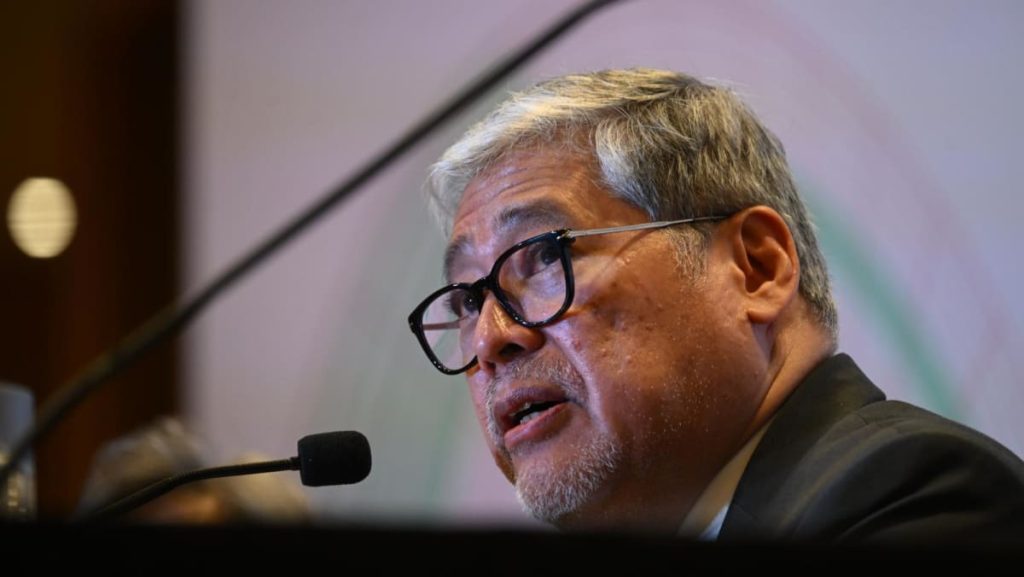Ambassador Enrique Manalo’s observations highlight a significant shift in global dynamics, emphasizing the growing influence of non-superpower nations in shaping regional and international agendas. His remarks center on the burgeoning trend of South-South cooperation, a framework where developing nations collaborate to address common challenges and pursue shared development goals, often independent of traditional Western funding streams. This signifies a departure from the established North-South cooperation model, which often involved aid flowing from developed to developing countries, sometimes with attached conditions. Manalo’s examples showcase concrete instances of this evolving cooperation landscape, demonstrating how countries with similar developmental trajectories are forging partnerships tailored to their specific needs and realities.
Manalo underscores the rise of South-South cooperation as a key feature of the current global landscape. He notes that over the past decade, this form of collaboration has flourished, driven by a desire among developing countries to tackle shared policy challenges collectively. This proactive approach allows them to leverage their collective strengths, share best practices, and build capacity within a framework of mutual understanding and respect. It also provides a platform for these nations to amplify their voices on the global stage, promoting solutions that are relevant and effective in their specific contexts, rather than relying solely on externally imposed models.
The Ambassador cites several examples to illustrate the tangible impact of South-South cooperation. One prominent case is the Regional Payment Connectivity (RPC) initiative, a multilateral agreement initially established between the Philippines, Singapore, Malaysia, Thailand, and Indonesia in November 2022. This MOU aims to streamline cross-border payments, promoting greater financial inclusion and efficiency within the region. The initiative’s expansion to include Vietnam in 2023, and subsequently Brunei and Laos in April 2024, demonstrates the growing recognition of its value and the appeal of collaborative solutions. This expansion highlights the dynamism and adaptability of South-South partnerships, showcasing their ability to evolve and incorporate new members as shared interests dictate.
Further emphasizing the diversity of South-South cooperation, Manalo points to the Philippine-Pacific Health Initiative. Launched in November 2024, this initiative focuses on strengthening health systems in Pacific Island countries by addressing critical workforce shortages. This exemplifies the practical application of South-South partnerships in addressing vital social development needs. By sharing expertise, resources, and training opportunities, the Philippines aims to contribute to the long-term health security and resilience of the Pacific region. This initiative highlights the potential for South-South cooperation to extend beyond economic and financial domains, encompassing crucial areas like healthcare, education, and environmental sustainability.
The examples cited by Manalo, ranging from financial integration to healthcare capacity building, demonstrate the breadth and depth of South-South cooperation. These initiatives are not merely symbolic gestures but represent substantive efforts to address real-world challenges. The RPC, for instance, tackles the often complex and costly process of cross-border transactions, while the Philippine-Pacific Health Initiative directly contributes to improving healthcare delivery in a region facing significant resource constraints. These concrete examples underscore the practical impact of South-South cooperation and its potential to drive meaningful change on the ground.
In conclusion, Manalo’s observations paint a picture of a changing global order where South-South cooperation is emerging as a powerful force. This trend reflects a growing recognition among developing nations of their collective strength and their ability to shape their own development trajectories. By forging partnerships based on shared interests and mutual respect, these countries are creating innovative solutions to complex challenges and establishing a more equitable and inclusive global landscape. The continued expansion of initiatives like the RPC and the Philippine-Pacific Health Initiative signifies the growing momentum of South-South cooperation and its potential to become a defining feature of 21st-century international relations. This shift underscores the increasing importance of collaborative approaches to development, emphasizing the power of shared knowledge, resources, and expertise in addressing global challenges and promoting sustainable growth.

